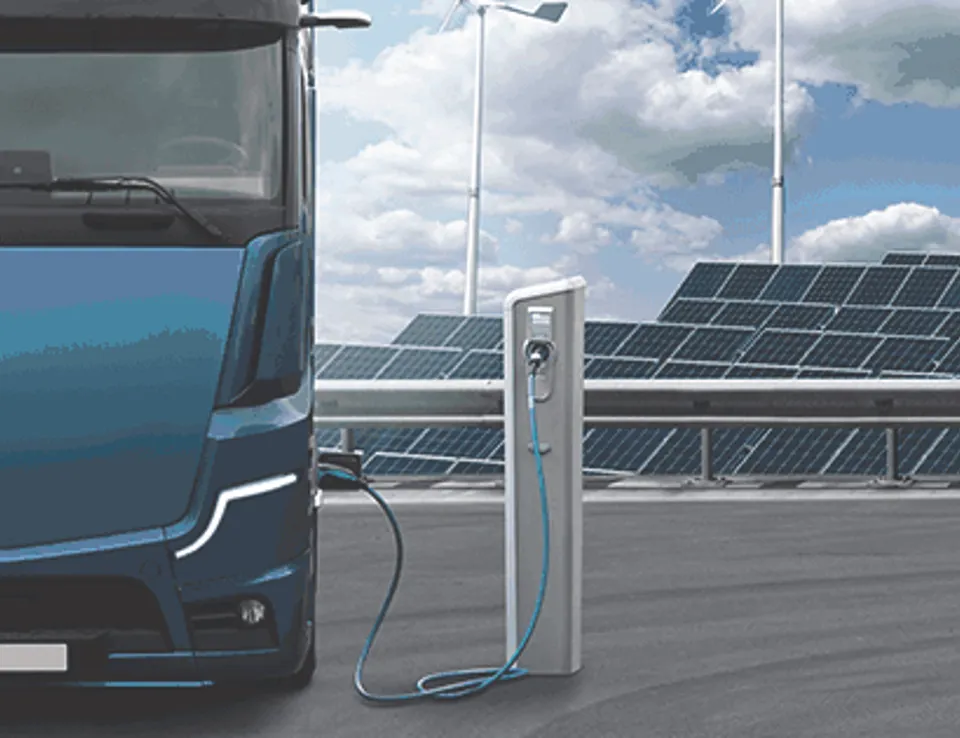Ricardo wins government funding to develop sustainable motors for electric light commercial vehicles
Ricardo will apply its expertise in motor R&D and manufacturing to drive down electrification costs and increase the sustainability of future electric commercial vehicles, helping the UK transport sector achieve its net zero carbon targets.
As part of its mission to support the decarbonisation of the global transport and energy sectors Ricardo, a world-class environmental, engineering and strategic consulting company, has announced that it has won two UK Government-backed innovation competitions to support the UK’s transition to zero emission vehicles by developing a dedicated electric motor for battery electric light commercial vehicles.
Ricardo has been developing a rare-earth magnet-free sustainable electric motor concept with aluminium stator windings, which retains the key attributes of magnet-rich motors. The goal has been to create technology which is robust, costs less than current products and reduces lifecycle impact by eliminating the use of scarce resources for example up to 12kg of rare earth metals and also high acidification materials such as copper without impacting motor function or quality.
Funding has been awarded by the Driving the Electric Revolution Challenge at UK Research and Innovation to the UK-ALUMOTOR consortium which Ricardo leads. This is the second funded project awarded from DER and will allow Ricardo and its consortium partners: Aspire Engineering, Brandauer, Warwick Manufacturing Group at The University of Warwick, Phoenix Scientific Industries, and Global Technologies Racing to get the light commercial vehicle motor concept to a much higher level of manufacturing readiness. The consortium will deliver a tested and validated pre-production, highly sustainable motor, with up to 12kg reduction in rare earth magnets per machine. This will enable the UK to scale motor production and accelerate the transition to electrified transport, as well as build and secure its national capability and domestic supply chain without risk from international markets, so providing competitive advantage.
The consortium is also investigating higher performance derivatives, suitable for passenger cars, defence and motorsport applications.
Funding has also been awarded from the Office for Zero Emission Vehicles (OZEV) in partnership with Innovate UK which will assist Ricardo to develop the motor concept to a prototype level specifically for battery electric light commercial vehicles. This will assist the take-up of battery electric light commercial vehicles by making them more efficient, cost-effective and more sustainable.
Teri Hawksworth, President of Ricardo Automotive and Industrial EMEA, said: “The cost of electrification is widely recognised as being the biggest barrier to wide-scale adoption of electric commercial vehicles. Manufacturers are also concerned about the supply security and volatile costs of the rare earth metals used in most zero emission vehicles. Ricardo is committed to supporting manufacturers by driving cost out of electrification, leveraging our world-renowned expertise in motor innovation, and driving sustainable technology solutions which will support the UK in achieving its net zero carbon emission targets for commercial vehicles by 2030.”
The European battery electric light commercial vehicle 2.5t-3.5t market is currently 63,000 vehicles annually. This is forecast to grow to 282,000 vehicles in 2026, continuing to rise to 345,000 vehicles in 2028.
In September 2021, Ricardo announced that it had received UK Government funding of research to reduce the cost of future electric trucks and improve their efficiency and performance. These latest funding awards are a further enhancement to Ricardo’s capability in power electronics, motors and manufacturing for electric commercial vehicles and puts the company in a strong position to support customers in the accelerating drive to electrification.
Download
Ricardo wins government funding to develop sustainable motors for electric light commercial vehicles.









